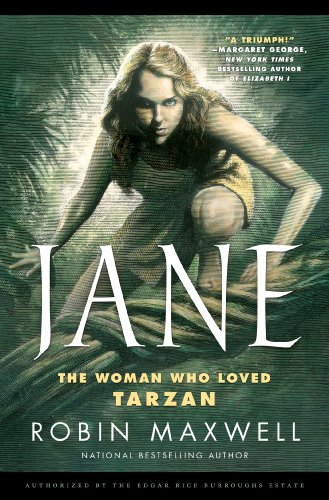Jane: The Woman Who Loved Tarzan
Going on safari was all the rage among British noblemen in early 20th-century England, but Jane Porter and her father, a professor of science at Cambridge, weren’t interested in trophy hunting: they were searching for evidence of Darwin’s missing link. Setting off on a seemingly well-planned adventure thrilled the bold and courageous Jane, and even when signs of trouble with their traveling partners arose, her enthusiasm and clever reasoning calmed the situations and returned the focus to the matter at hand: their all-important expedition in the name of Science.
Once in Africa, their companion’s double-dealing becomes obvious and Jane finds herself abandoned in the wild, but in the care of a gentle savage who calls himself Tarzan. Coming to terms with her predicament, Jane’s ever-resourceful personality and commitment to her scientific endeavors overtakes her inbred socially decorous qualms. She fully embraces her newfound opportunity to study not only a man-turned-feral-animal, but the tribe who raised him. The Mangani were an undiscovered group of ape-men complete with a language not unlike the mysterious neighboring human clan, who own the secrets coveted by corrupt fortune hunters.
The most apparent theme to this novel is a woman’s place in society, within the confines of British aristocracy, and other male-dominated orders. Jane chafes against the gender-biased culture, but finds the same standards often apply to the natural world. Another dilemma lies in readying Tarzan for a society in which he belongs but which is entirely alien to him. With an imaginative and enlightening journey from Edwardian England to unchartered wilds, an intensely dangerous climax and a satisfying ending, this retelling of Tarzan through the eyes of Jane is an adventurous cross-genre read, as well as an unforgettable love story—a great addition to the classic on its centennial anniversary.










